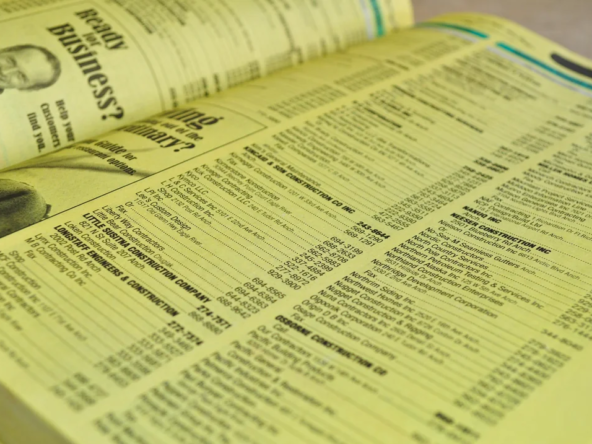What You Need and How to Choose the Best Coverage for Natural Disasters
Thailand’s appeal as a real estate destination is undeniable. With its tropical beauty, welcoming culture, and attractive property prices, many investors, retirees, and expats choose to make this Southeast Asian country their home or second residence. However, alongside the dream of owning property comes a critical but often overlooked necessity: real estate insurance.
Thailand, while stunning, is no stranger to environmental risks. From flash floods and tropical storms to occasional earthquakes and fires, property in many parts of the country is vulnerable to natural hazards. Understanding real estate insurance in Thailand—and choosing the right kind of policy—can be the difference between peace of mind and financial hardship when disaster strikes.
Why Property Insurance is Crucial in Thailand
Thailand’s varied geography and climate expose property owners to a range of natural threats. The rainy season brings regular flooding to areas like Bangkok, Ayutthaya, and Chiang Mai. Coastal regions are occasionally battered by typhoons or tropical storms, and mountainous areas can suffer landslides. Even the northern provinces have experienced mild earthquakes in recent years.
Despite these risks, many property owners—especially foreigners unfamiliar with local conditions—either go uninsured or opt for minimal coverage. It’s a common mistake. Standard fire insurance policies, for example, often exclude flood, storm, and earthquake damage unless specific add-ons are included. Understanding the local insurance landscape and selecting a comprehensive policy tailored to your property’s location is key.
Types of Real Estate Insurance Available in Thailand
There are several insurance options available for homeowners in Thailand. The most basic form is fire insurance, which typically covers damage from fire, lightning, and explosions. This type of insurance is sometimes required by banks if a property is mortgaged, but it provides limited protection against real-world risks.
A more complete option is homeowners’ insurance, which can include coverage for theft, internal water damage, personal liability, and in many cases, natural disasters—provided those risks are clearly listed in the policy. Condo owners should be aware that building insurance is often handled by the building’s management, but this only covers common areas and structural damage. Contents insurance or a unit-specific policy is necessary to protect interior renovations and personal belongings.
What to Look for in Natural Disaster Coverage
Not all insurance policies automatically include protection from Thailand’s most common natural hazards. If your property is in a high-risk area—or even if it isn’t—it’s worth checking your policy for the following coverages.
Flooding is one of the most frequent and expensive natural disasters in Thailand. Especially during the rainy season, urban and rural areas alike can experience flash floods or prolonged standing water. A good policy should include both direct and residual damage from floodwaters.
Earthquake protection may seem unnecessary in Thailand, but in northern provinces such as Chiang Mai and Chiang Rai, minor seismic activity has been recorded. Adding this coverage is generally inexpensive and can protect against structural damage or loss in the event of a serious event.
Wind and storm damage should be considered in coastal areas or locations frequently affected by tropical weather. Strong winds and heavy rain can cause roof damage, break windows, and lead to flooding. Be sure your policy clearly covers wind, storm surge, and damage from water ingress.
Landslides and ground subsidence are important to consider if your property is built on sloped or unstable ground. Some comprehensive policies include geological movement coverage, but it may be listed under separate terms.
Fire and smoke coverage is typically included in basic policies, but it’s essential to verify that the coverage extends to electrical fires and external sources such as wildfires.
Contents insurance is crucial for condo owners or homeowners with valuable furniture, electronics, or upgrades. It ensures that personal possessions and interior improvements are covered, especially if damage is caused by water, fire, or theft.
Lastly, alternative accommodation coverage is worth looking into. This ensures that if your property becomes uninhabitable due to a covered event, your insurer will pay for temporary housing or hotel stays during repairs.
Recommended Insurance Providers in Thailand
Several insurance companies in Thailand offer policies tailored to both Thai and foreign property owners. Among the top providers are AXA Thailand, which offers flexible and customizable policies including flood and earthquake add-ons. Their English-language support and straightforward claims process make them a favorite among expats.
AIG Thailand is another reputable provider, offering broad coverage options that are especially attractive for high-value properties or owners seeking global-standard protection. They are known for comprehensive natural disaster coverage and detailed policy terms.
LMG Insurance, part of Liberty Mutual, is popular for offering competitive pricing on home and condo insurance. Their policies often include fire, theft, and optional disaster protection, making them a solid choice for middle-tier homeowners.
Muang Thai Insurance is a trusted local provider offering a range of affordable plans with options to include coverage for flood, earthquake, and storms. Though mostly Thai-speaking, many agents work with brokers to assist English-speaking clients.
ThaiVivat Insurance specializes in customizable coverage, including standalone natural disaster insurance, which can be added to existing property policies or taken independently depending on the owner’s needs.
When choosing an insurer, always request English-language policy documents if needed, ask detailed questions about exclusions, and clarify deductibles and claim procedures. Working with a bilingual insurance broker can also simplify the process and ensure you’re fully protected.
Can Foreigners Buy Property Insurance in Thailand?
Yes, foreigners who legally own property in Thailand are eligible to purchase property insurance. Whether the ownership is a freehold condo, a house on leased land, or a villa held through a Thai company structure, insurance is available. Most major insurance companies in Thailand offer plans that can be issued directly to foreign nationals.
For rental property owners, landlord-specific coverage is available and often includes protection against tenant-related damage, loss of rental income, and liability claims.
Cost of Property Insurance in Thailand
Property insurance in Thailand is generally affordable compared to Western countries. Pricing depends on several factors, including property value, location, risk exposure, and desired coverage.
A basic fire insurance policy might cost as little as 1,500 to 3,000 THB per year for a condo. A more comprehensive policy covering natural disasters could range from 5,000 to 20,000 THB annually for a single-family home, with additional charges for flood or earthquake coverage based on location.
For high-end properties, especially those in flood-prone or coastal areas, more complete policies may exceed 30,000 THB annually, but the peace of mind is often worth the investment.
Final Thoughts
Thailand is a dream location for many property owners, but that dream comes with risks—especially from nature. Choosing the right real estate insurance policy ensures that when the unexpected happens, your investment is safe and recovery is possible.
Whether you’re a full-time resident, a seasonal visitor, or a landlord, taking the time to review and upgrade your property insurance is a smart, proactive move. Focus on comprehensive coverage, especially for flooding and storm damage, and always consult with a reputable insurer or broker familiar with Thailand’s landscape.
Protect your property today so you’re not caught off guard tomorrow.
Check out Properties in Thailand




